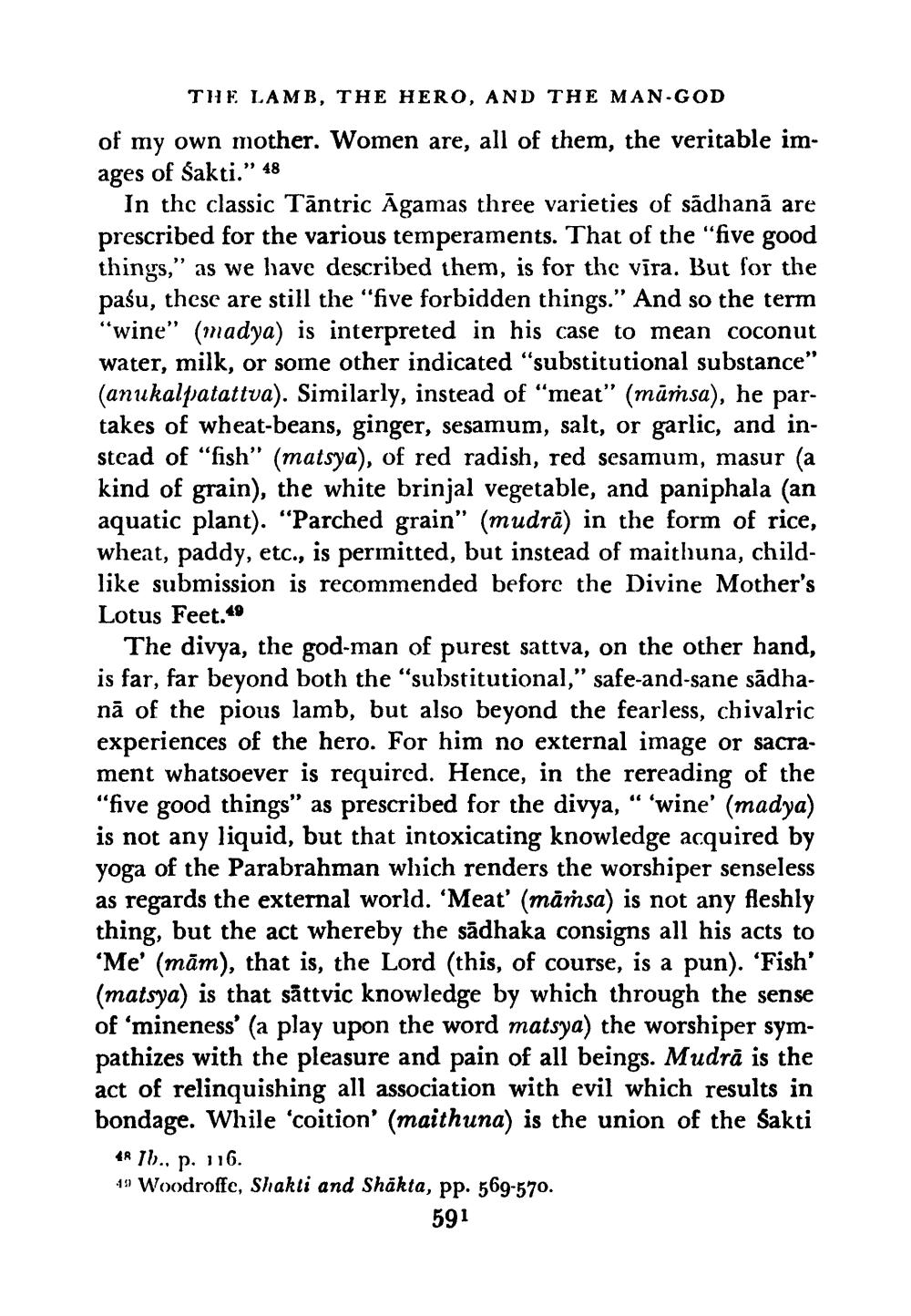________________
THE LAMB, THE HERO, AND THE MAN-GOD of my own mother. Women are, all of them, the veritable images of Sakti.” 48
In the classic Tântric Āgamas three varieties of sādhanā are prescribed for the various temperaments. That of the "five good things,” as we have described them, is for the vīra. But for the pašu, these are still the "five forbidden things." And so the term "wine" (madya) is interpreted in his case to mean coconut water, milk, or some other indicated “substitutional substance" (anukalpatattva). Similarly, instead of "meat" (mūssa), he partakes of wheat-beans, ginger, sesamum, salt, or garlic, and instead of "fish” (matsya), of red radish, red sesamum, masur (a kind of grain), the white brinjal vegetable, and paniphala (an aquatic plant). “Parched grain" (
mudrā) in the form of rice, wheat, paddy, etc., is permitted, but instead of maithuna, childlike submission is recommended before the Divine Mother's Lotus Feet.49
The divya, the god-man of purest sattva, on the other hand, is far, far beyond both the "substitutional," safe-and-sane sādhanā of the pious lamb, but also beyond the fearless, chivalric experiences of the hero. For him no external image or sacrament whatsoever is required. Hence, in the rereading of the "five good things" as prescribed for the divya, " 'wine' (madya) is not any liquid, but that intoxicating knowledge acquired by yoga of the Parabrahman which renders the worshiper senseless as regards the external world. 'Meat' (māṁsa) is not any fleshly thing, but the act whereby the sadhaka consigns all his acts to 'Me' (mām), that is, the Lord (this, of course, is a pun). 'Fish' (matsya) is that sättvic knowledge by which through the sense of 'mineness' (a play upon the word matsya) the worshiper sympathizes with the pleasure and pain of all beings. Mudră is the act of relinquishing all association with evil which results in bondage. While 'coition' (maithuna) is the union of the sakti
48 lb., p. 116. 19 Woodroffe, Shakti and Shakta, pp. 569-570.
591




